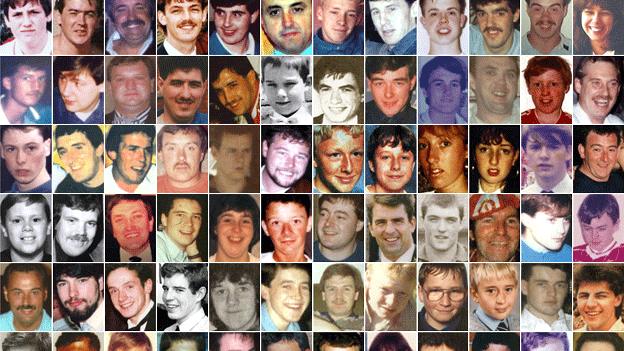Hillsborough inquests: Jury to consider if victims 'unlawfully killed'
- Published
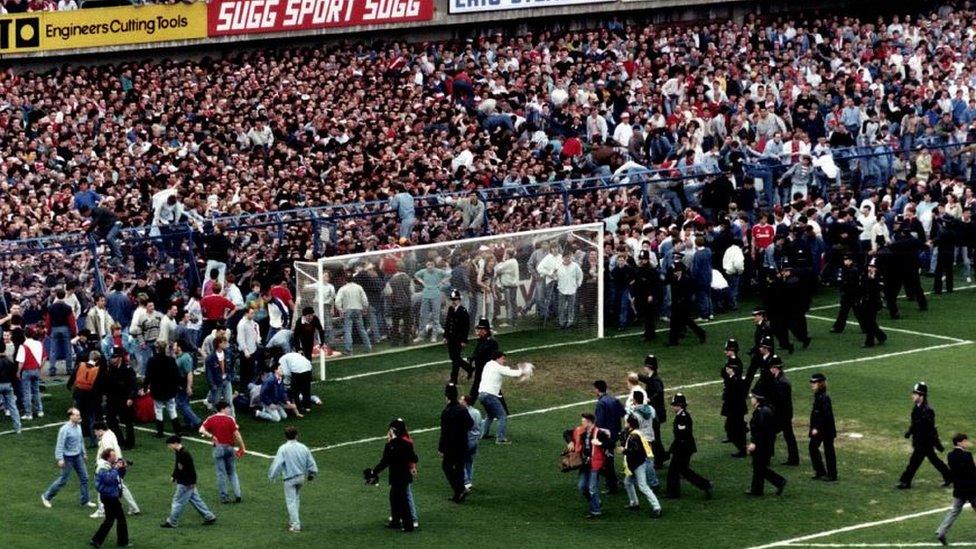
The inquest, the longest in UK legal history, began on 31 March 2014
The jury at the Hillsborough inquests has been told one of its options is to consider whether the 96 victims of the disaster were unlawfully killed.
To do so, the jury would have to be sure match commander David Duckenfield was responsible for their manslaughter by gross negligence, the coroner said.
Sir John Goldring has begun summing up nearly two years of evidence into the disaster at the 1989 FA Cup semi-final.
He said the question of how the fans died was "the most controversial".
In considering Mr Duckenfield's conduct, Sir John asked the jury to examine his decision at 2.52pm when he ordered the opening of Gate C, allowing about 2,000 fans to flood into "relatively full" central pens behind the goal on Leppings Lane.
Sir John said the jury had heard evidence that, in broad terms, Mr Duckenfield had said that the gate or gates had been forced and did not say the police had ordered the gates to be opened - what Mr Duckenfield had called a "lie of omission".
He asked the jury to decide whether Mr Duckenfield had lied, and "if you are sure he did lie, you have to ask yourselves 'why?'"
Was it a result of panic or fear of public disorder, he said. Or was it because Mr Duckenfield knew his actions beforehand were responsible for the crushing in the pens, he asked the jury.

Former Ch Supt David Duckenfield was match commander on the day
To find the fans were unlawfully killed and that Mr Duckenfield was responsible, Sir John told the jury they must answer four key questions:
Firstly, that as match commander, he owed a duty of care to the 96 who died
Secondly, that he was in breach of that duty of care
Thirdly, they must be sure that the breach of Mr Duckenfield's duty of care caused the deaths
Finally, the jury must be sure that the breach which caused the deaths amounted to "gross negligence."
Unless they are sure on all the four questions they should not conclude the fans were unlawfully killed, jurors were told.
Sir John also told the jurors the inquests were not a trial and they could not find anybody guilty of a criminal offence.
The issue of unlawful killing is one of 14 questions the jury will have to answer which will also include whether opportunities were lost to save lives on the day of the disaster, 15 April 1989.
Questions the Hillsborough jury needs to answer
The coroner also told the jury it would be asked if "error or omission" by emergency services, match planners, football supporters and stadium design contributed to the deaths.
There are certain words such as "crime" the jury should not use in responding to the questions, Sir John said. However, he said words such as "failure", "inappropriate" and "inadequate" could be used.
The jury will also be asked to consider whether any behaviour on the part of football supporters caused or contributed to the "dangerous situation" that developed as fans arrived at the stadium's Leppings Lane turnstiles.
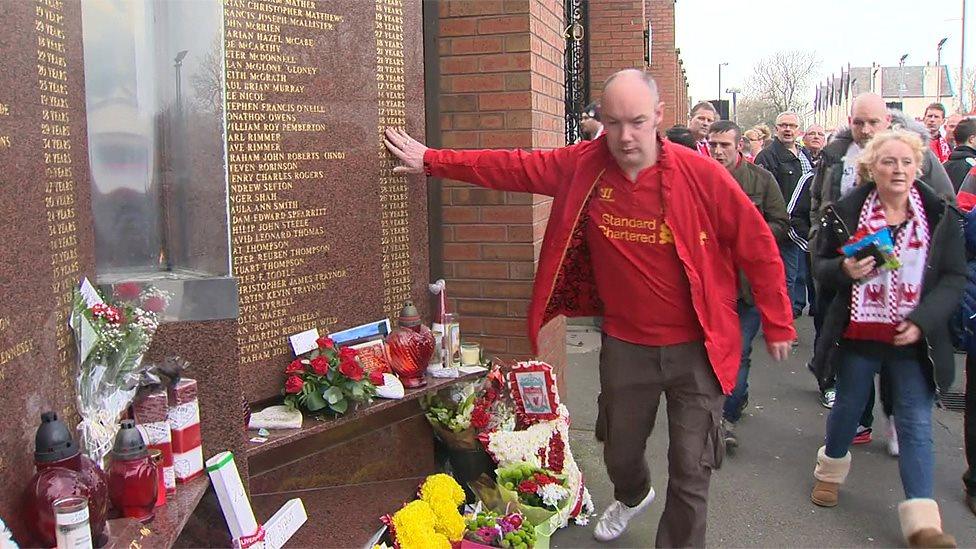
The jury is due to retire to consider its verdicts on 22 February
Over the next three weeks, the coroner will review 21 months of evidence before sending the jury out to consider its verdicts on 22 February.
Sir John has called more than 500 witnesses including survivors, police and medical experts since the inquests began on 31 March 2014.
They are already the longest in English legal history.

Who were the 96 victims?
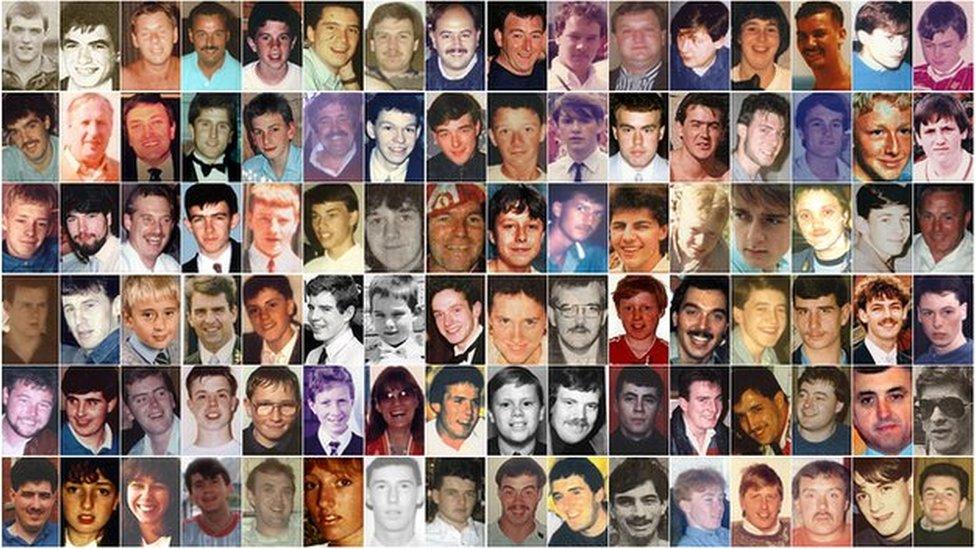

- Published25 January 2016

- Published26 April 2016
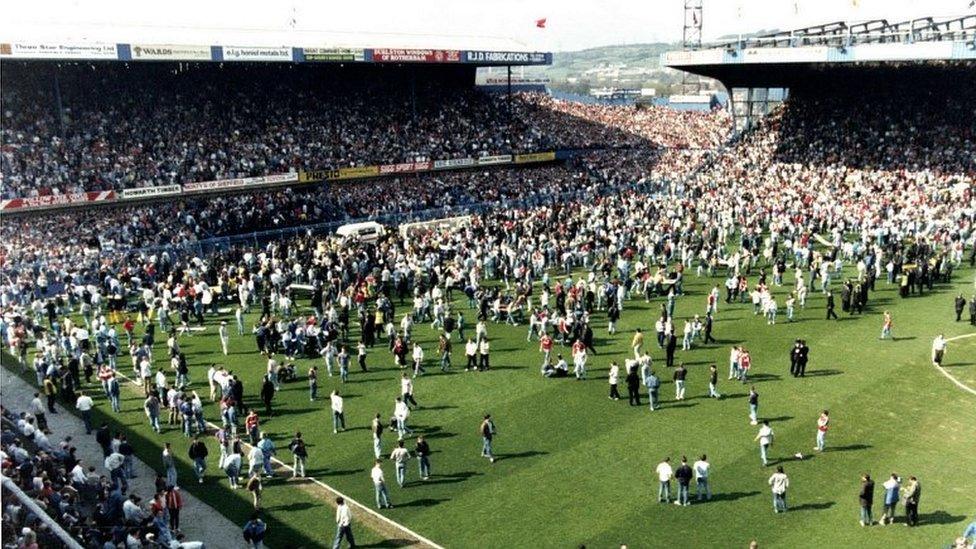
- Published26 April 2016
